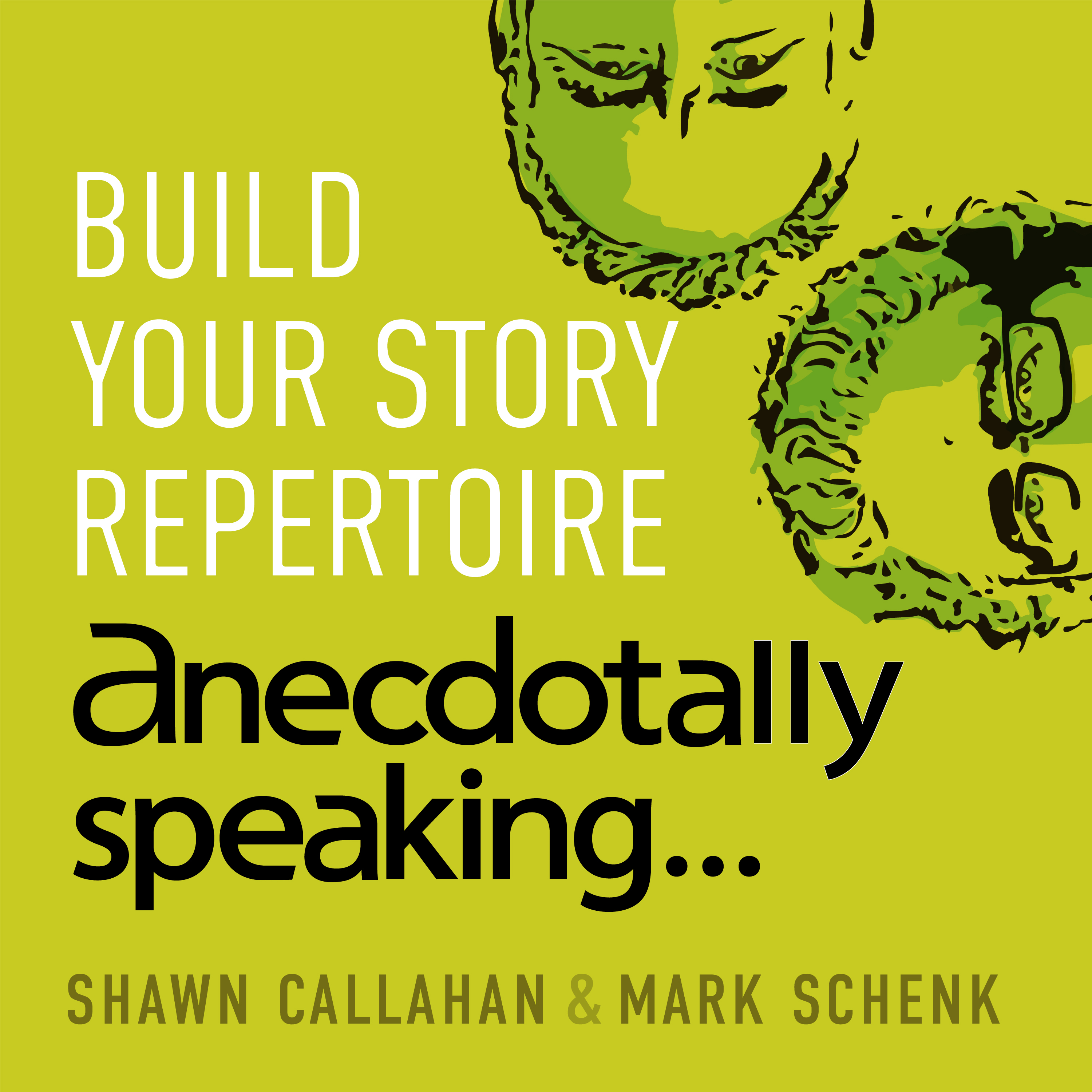Mar 17 2025 20 mins
In Episode 241 of Anecdotally Speaking, discover how a wrong note became a moment of brilliance – and the lesson it holds.
Mark shares a powerful story from the world of jazz, featuring the legendary Miles Davis and a young Herbie Hancock. During a 1963 performance in Stockholm, Davis turned a moment of mistake into magic.
This story illustrates a key lesson: we can’t always control what happens, but we can control our response. Mark and Shawn explore how this idea applies in business, leadership, and everyday life. They also discuss how to refine storytelling techniques, from structuring endings to engaging different audiences.
Learn more about our upcoming public workshops here.
For your story bank
Tags: Storytelling, Leadership, Resilience, Adaptability, Music, Mistake
This story starts at 2:55
In 1963, the Miles Davis Quintet was playing a concert in Stockholm, Sweden. Miles Davis was already at the peak of jazz—an innovator, a legend. And in his band that night was a young pianist named Herbie Hancock. Hancock was just 21 at the time, a kid compared to the rest of the group, but Miles saw something in him and brought him into the band.
The music that night was hot. Everything was flowing. Then they started playing So What, one of Miles Davis’ greatest hits. It begins slow, with a bit of a drum bang, then builds into a crescendo before Davis launches into a solo.
Everything was going great. The band was in sync. Just as Davis was about to let loose, he paused for a second—and in that moment, Hancock played a chord. And the chord was wrong. Completely wrong. He described it as just hanging there like a rotten piece of fruit.
Hancock gasped. He put his hands on his head. He couldn’t believe what he had done—he had ruined the moment. But Miles Davis looked over, paused, and then played a series of notes. And somehow, he took that horrible chord and turned it into something beautiful. He made it work.
Hancock later reflected that this moment taught him something not just about music, but about life. Things go wrong. You don’t get to choose that. But you do get to choose how you respond. Miles Davis used to say, if you hit a wrong note, it’s the next note you play that determines if it’s good or bad.
Mark shares a powerful story from the world of jazz, featuring the legendary Miles Davis and a young Herbie Hancock. During a 1963 performance in Stockholm, Davis turned a moment of mistake into magic.
This story illustrates a key lesson: we can’t always control what happens, but we can control our response. Mark and Shawn explore how this idea applies in business, leadership, and everyday life. They also discuss how to refine storytelling techniques, from structuring endings to engaging different audiences.
Learn more about our upcoming public workshops here.
For your story bank
Tags: Storytelling, Leadership, Resilience, Adaptability, Music, Mistake
This story starts at 2:55
In 1963, the Miles Davis Quintet was playing a concert in Stockholm, Sweden. Miles Davis was already at the peak of jazz—an innovator, a legend. And in his band that night was a young pianist named Herbie Hancock. Hancock was just 21 at the time, a kid compared to the rest of the group, but Miles saw something in him and brought him into the band.
The music that night was hot. Everything was flowing. Then they started playing So What, one of Miles Davis’ greatest hits. It begins slow, with a bit of a drum bang, then builds into a crescendo before Davis launches into a solo.
Everything was going great. The band was in sync. Just as Davis was about to let loose, he paused for a second—and in that moment, Hancock played a chord. And the chord was wrong. Completely wrong. He described it as just hanging there like a rotten piece of fruit.
Hancock gasped. He put his hands on his head. He couldn’t believe what he had done—he had ruined the moment. But Miles Davis looked over, paused, and then played a series of notes. And somehow, he took that horrible chord and turned it into something beautiful. He made it work.
Hancock later reflected that this moment taught him something not just about music, but about life. Things go wrong. You don’t get to choose that. But you do get to choose how you respond. Miles Davis used to say, if you hit a wrong note, it’s the next note you play that determines if it’s good or bad.
